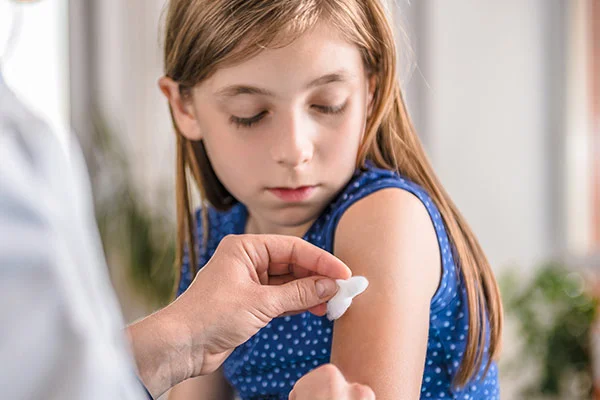Meningococcal disease is not very common in the U.S., but teens and young adults are at increased risk. Fortunately, there are vaccines to help prevent the most common types of meningococcal disease. This is a very serious illness where death can occur in as little as a few hours, so it’s important for parents to talk with their child’s doctor about vaccination.
All 11 to 12 year olds should be vaccinated with a single dose of a meningococcal conjugate vaccine. The CDC recommends a booster dose at age 16. The booster dose gives teens continued protection during the ages when they are at highest risk. If your teenager missed getting a dose, ask the doctor about getting it now.Teens and young adults (ages 16 through 23) may also be vaccinated with a serogroup B meningococcal vaccine, preferably at ages 16 through 18. Multiple doses of serogroup B meningococcal vaccine are needed and the same brand must be used for all doses.
Meningococcal vaccines are safe but side effects can occur. About half of the people who get a meningococcal conjugate vaccine have mild side effects following vaccination, such as redness or pain where the shot was given or a mild fever. These reactions usually get better on their own within one to two days, but serious reactions are possible. Following serogroup B meningococcal vaccination, more than half of the people who get the vaccine will have mild side effects:
- Soreness, redness or swelling at the injection site
- Fatigue
- Headache
- Muscle or joint pain
- Fever or chills
- Nausea or diarrhea
These reactions usually get better on their own within three to seven days, but serious reactions are possible. Talk with your child’s doctor if you have any questions about the vaccine or about meningococcal disease.
Source: U.S. Department of Health and Human Services




